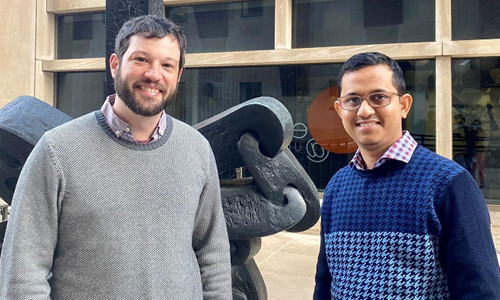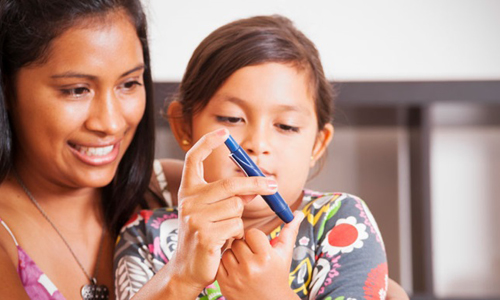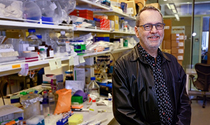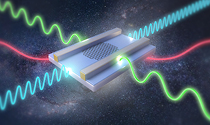|
|
|
|
| |
Welcome to the November edition of µChicago, which brings the top science news from across the University right to your inbox. This month’s issue highlights the work of scientists who are snapping photos of cellular mechanisms, revolutionizing treatment for type 1 diabetes, and solving imperative research problems. |
|
| |
|
|
|
|
|
|
|
| |
| |
|
|
| |
Image: Research into cell adaptations to stress is “at the mechanistic heart of so many human diseases,” said David Pincus, assistant professor of molecular genetics and cell biology, pictured (left) with Asif Ali, both coauthors of the study. (Biological Sciences Division) |
|
| |
|
|
|
|
| |
|
|
|
|
|
|
|
|
|
| |
|
|
|
| Atom exchange: Two studies demonstrate new ways to swap out certain atoms within drug molecules, potentially allowing researchers to test more molecular combinations without starting over, speeding drug discovery. |
|
|
|
| |
|
|
|
|
|
| |
|
|
|
| Sensors for survivors: The Bionic Breast Project is preparing to test a device that could restore sensation in mastectomy patients, improving sexual function and sense of self for cancer survivors. |
|
|
|
| |
|
|
|
|
|
| |
|
|
|
| Nuclear and improved: A next-generation nuclear reactor, the sodium-cooled fast reactor, is promising, but prone to blockages and corrosion. Scientists at Argonne National Laboratory developed a machine learning system to detect anomalies in the reaction process, increasing safety and stability—and getting science a step closer to carbon-free energy. |
|
|
|
| |
|
|
|
|
|
| |
Repurposed drug could transform type-1 diabetes treatment |
|
| |
|
|
|
|
|
| |
| |
|
|
| |
Image: Type 1 diabetes can affect both children and adults, causing blood sugar imbalances and symptoms that can be debilitating or fatal if left untreated. (UChicago Medicine) |
|
| |
|
|
|
|
| |
|
|
|
|
|
|
|
|
|
|
|
|
|
|
|
|
|
|
|
| |
| |
Visit the Alumni & Friends website for stories, podcasts, and other features, curated for you on UChicago Review. Create an account for a more personalized experience. |
|
|
|
| |
|
|
|
|
| |
| |
Sign up to receive µChicago monthly. |
|
|
|
| |
|
|
|
|





